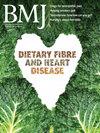NHS budget escapes relatively unscathed.
IF 93.6
Q1 MEDICINE, GENERAL & INTERNAL
引用次数: 0
Abstract
Mr Patrick Jenkin's reward for having been so accommodating about the social service side of his empire in the Cabinet battle over public spending cuts has been that the health budget was allowed to escape relatively unscathed. The NHS did not, of course, emerge unpruned at the end of the day, but at least it was not included in the 2% cut all the other rash-limited central government programmes have to accept. The Government has, however, still to fix the cash limits and it will depend on the allowance made for inflation whether the health authorities will find themselves in trouble again next year. The indications are that they will be subject to broadly the same discipline as local government, where the rate support grant will allow for a 6% annual increase in earnings and for an increase in prices other than pay of 11%. The direct NHS contribution to the cuts is about ?25m, which will be found by better use of resources and increased efficiency. Mr Jenkin believes that it can be raised through the elimination of inefficient working practices, energy savings, economies in catering, and more effective drug control. The motto for the NHS is to be: "Practisegood housekeeping." As a result of the measures health authorities' revenue spending will be able to rise by 1 i% next year, which is expected to be enough to cover demographic changes?mainly the increasing numbers of old people in the population?as well as to allow a start on some high priority developments. The planned spending on the family practitioner services is also to be maintained. Given that the surgery is of the order of only ?25m (though if people try really hard the savings could be greater), how is it to be done ? Mr Jenkin's answer is that the growth of spending on the NHS can be maintained by making people pay a bit more through National Insurance contributions. He also believes people are prepared to do just that to get results. The NHS has escaped the axe because the 1% increase in employees' National Insurance contributions to be introduced in April includes a i% for health, which will raise an extra ?254m. Some of that, if the sums provided are anything to go by, will probably be needed to meet the ?121m required to pay for various services which the Government had planned to intro duce charges for, such as road accidents and eye tests. But this i% is regarded by Labour MPs as part of a move to soften up the public's attitude towards paying for treatment through insurance. I think some of the hopes raised recently by Dr Gerard Vaughan, the Health Minister, about a consultative document on insurance funding in the New Year might prove to be a little high. Certainly some people who should have known better were surprised by what he said. The thought of insurance as a supplementary means of raising revenue has its attractions, and Mr Jenkin, who is said to have come round to the idea some what, will be making a speech soon setting out the pros and cons.NHS的预算相对来说毫发无损。
本文章由计算机程序翻译,如有差异,请以英文原文为准。
求助全文
约1分钟内获得全文
求助全文

 求助内容:
求助内容: 应助结果提醒方式:
应助结果提醒方式:


